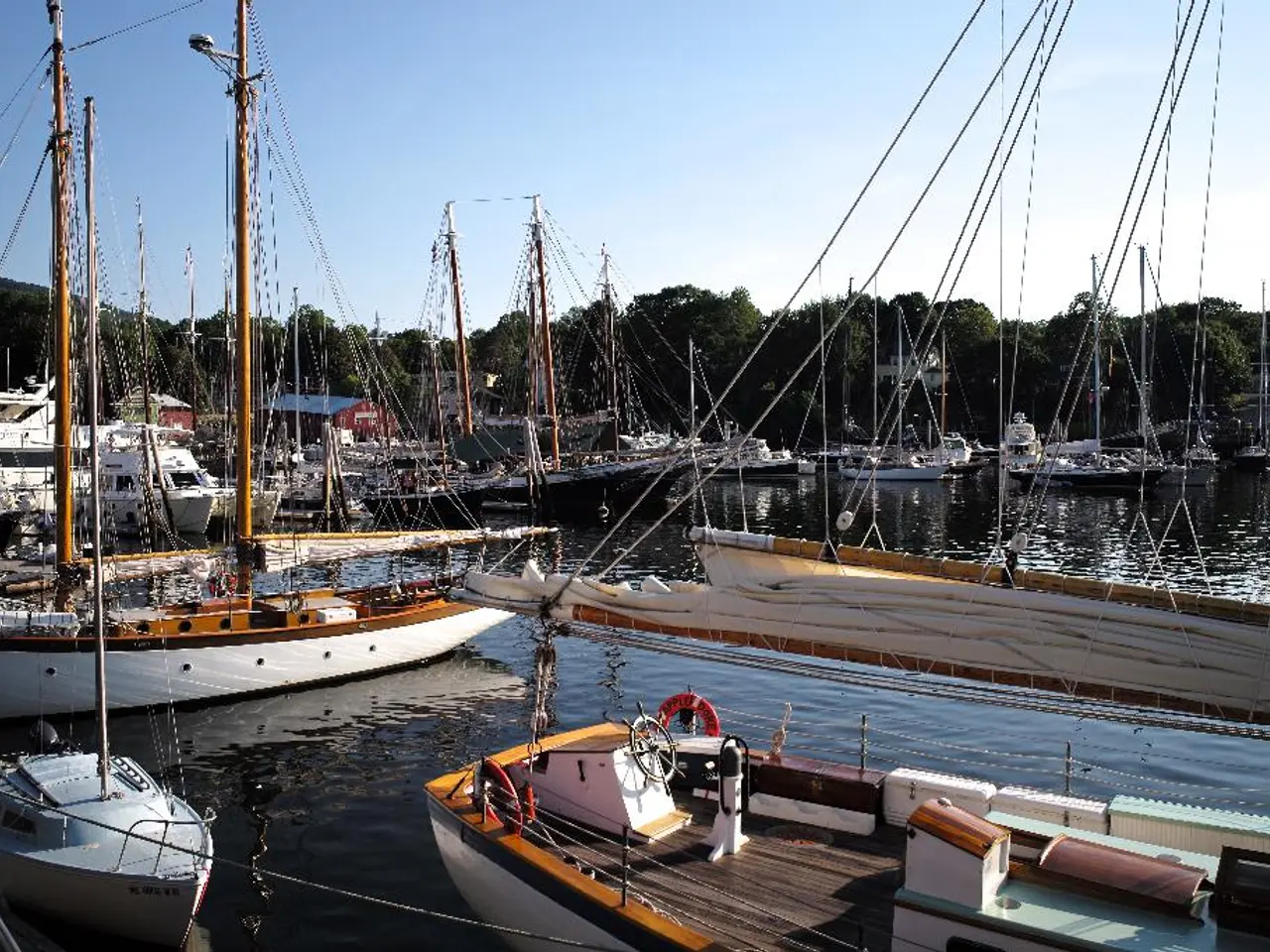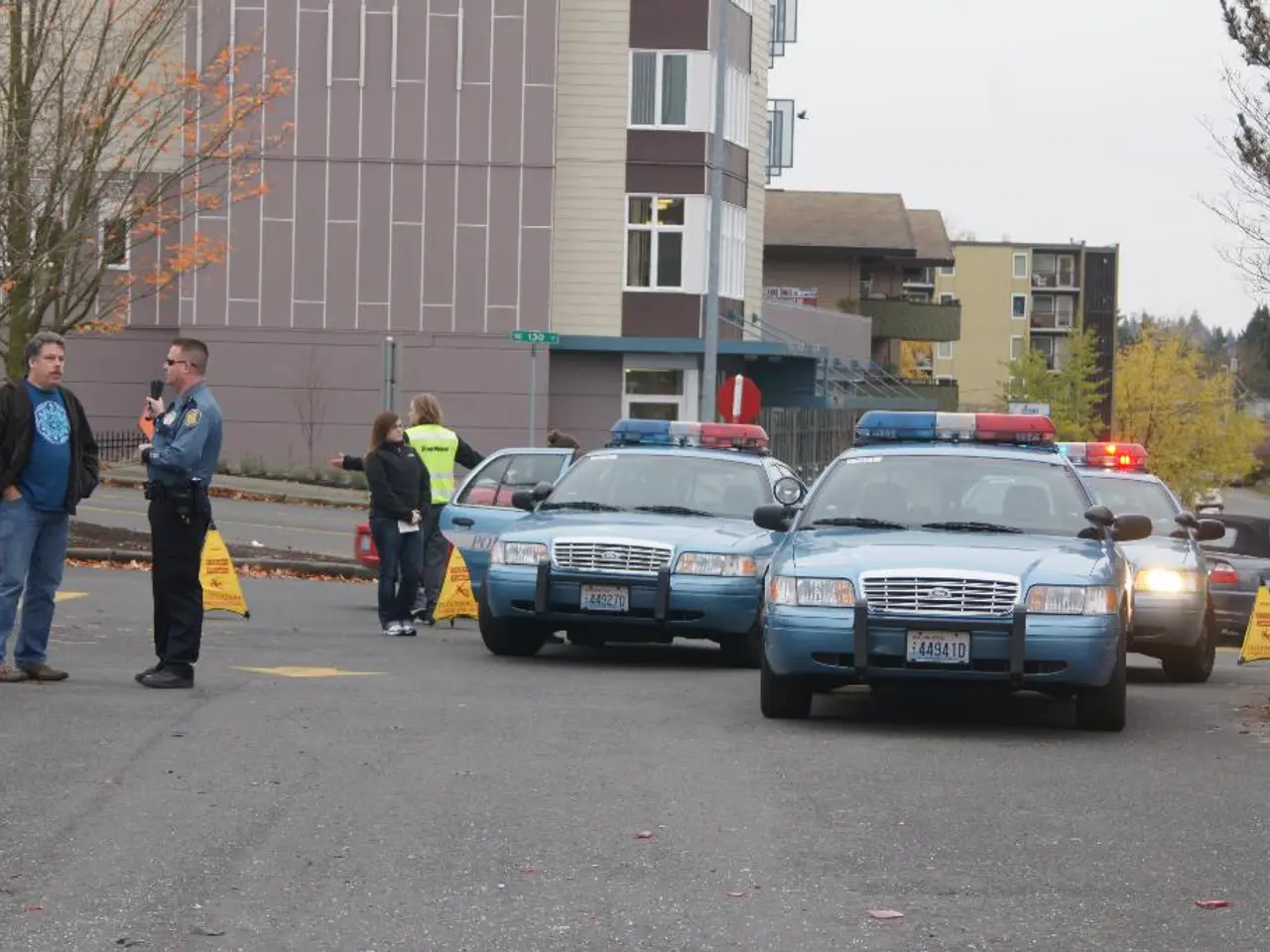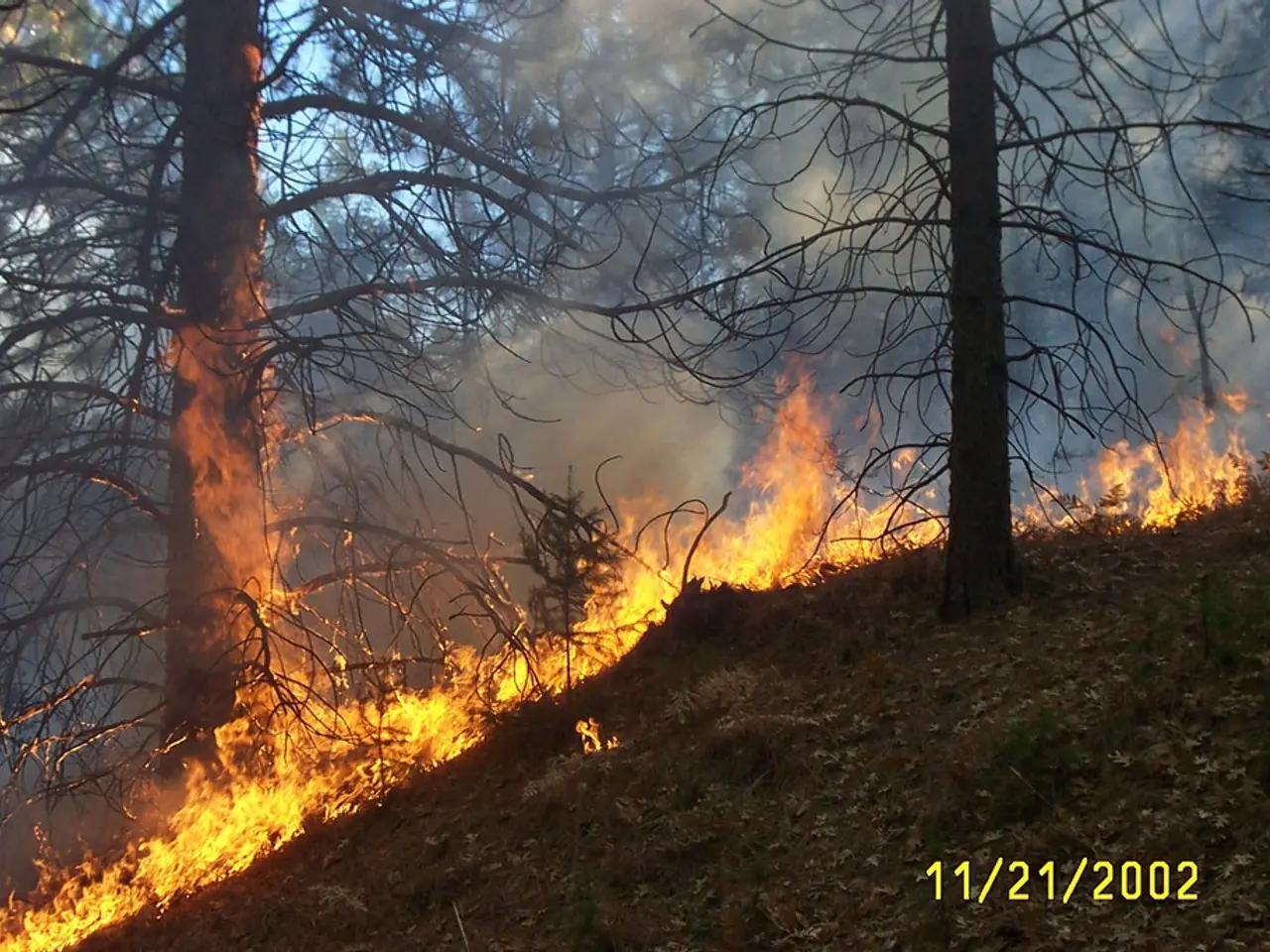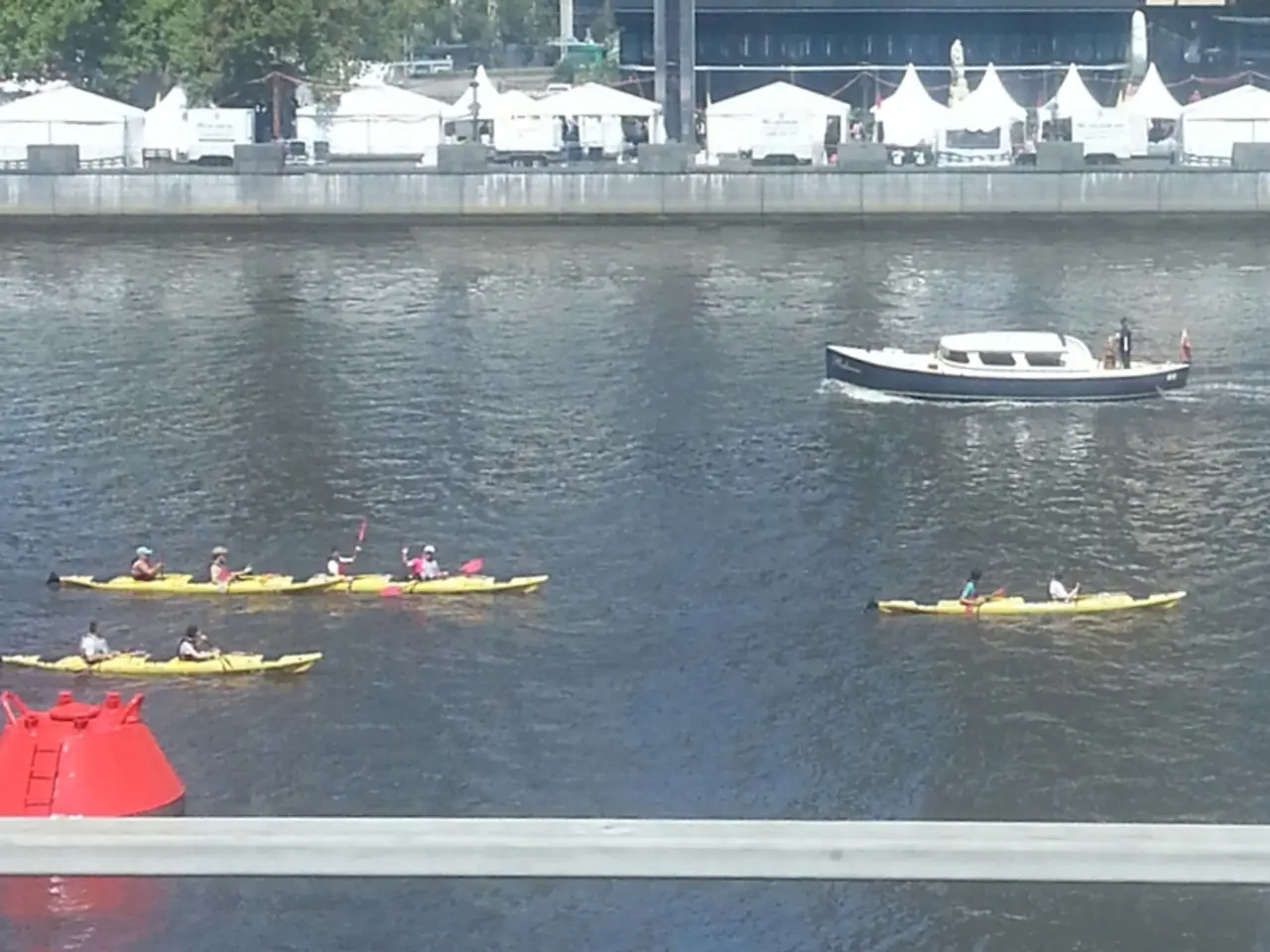Harbor in Dortmund temporarily shut down due to water shortage - Dömitzer port remains shut due to water scarcity.
The current drought in 2025 has significantly lowered water levels in the Elbe River, causing serious challenges for river traffic and shipping, particularly in the region around Dömitz in the district of Ludwigslust-Parchim.
The prolonged drought has led to a virtual drying up of the harbor in Dömitz, with shipping operations, including for pleasure boats, coming to a complete standstill. The police are also unable to use their boathouse due to the lack of water.
The low water levels have restricted vessel draft capacity, forcing limitations or suspensions of shipping operations in affected areas. This disruption has a significant impact on local industries and supply chains relying on river freight.
The ecological consequences of the drought are also being felt. Aquatic habitats and water-dependent agriculture in the region are under stress due to the lack of water.
Addressing the crisis requires immediate operational adjustments and long-term infrastructure and policy measures aimed at sustainable water management and climate resilience.
In an effort to alleviate the situation, Harbor Master Michael Kierstein has suggested that opening the dams in the neighboring country, Czech Republic, could supply the Elbe with additional water. However, more water is expected by the end of the week, but it is not expected to significantly improve shipping conditions.
Kierstein emphasized that the low water depth in Dömitz Harbor does not mean there is only four centimeters of water in the Elbe. Occasionally, a canoe might still pass by Dömitz Harbor, but there is no significant activity.
In the meantime, everyone is waiting for rain to improve the situation in Dömitz Harbor. Enhancing water storage upstream and regulating withdrawals could help maintain minimum navigation water depths. Plans for constructing or modernizing barrages and weirs, such as the planned Elbe barrage at Děčín, aim to manage river flow more effectively. Temporary shifts to rail or road freight might help bypass river traffic interruptions.
Spatially targeted support for agriculture and water use efficiency in drought-prone northern and eastern Germany, including Ludwigslust-Parchim, are critical. Investment in sustainable water resource management and climate adaptation strategies is needed to cope with the increasing frequency of such droughts driven by global warming.
References: [1] Deutsche Welle (2025). Drought hits Elbe river, disrupting shipping in Germany. [online] Available at: https://www.dw.com/en/drought-hits-elbe-river-disrupting-shipping-in-germany/a-56545171 [2] BBC News (2025). Elbe river drought causes shipping problems in Germany. [online] Available at: https://www.bbc.com/news/world-europe-57465783 [3] European Commission (2025). Adapting to climate change in Germany: Agriculture and water use efficiency. [online] Available at: https://ec.europa.eu/clima/policies/adapt/what/sectors/agriculture_en [4] The Guardian (2025). Elbe river drought threatens Germany's water-dependent ecosystems. [online] Available at: https://www.theguardian.com/environment/2025/aug/12/elbe-river-drought-threatens-germanys-water-dependent-ecosystems [5] German Federal Ministry of Transport and Digital Infrastructure (2025). Elbe barrage at Děčín: Plans for construction and modernization. [online] Available at: https://bmvi.bund.de/SharedDocs/EN/Artikel/DE/Verkehr/Wasserstraßen/Elbe-Decin/Elbe-Decin.html
The science of environmental protection could offer insights into managing drought-induced water shortages, as the current crisis on the Elbe River reflects the need for long-term policies that foster climate resilience. Meanwhile, the ongoing climate change, a pressing issue in the realm of environmental science, may increase the frequency of such droughts, highlighting the urgency for water resource management strategies and investments in sustainable practices.








